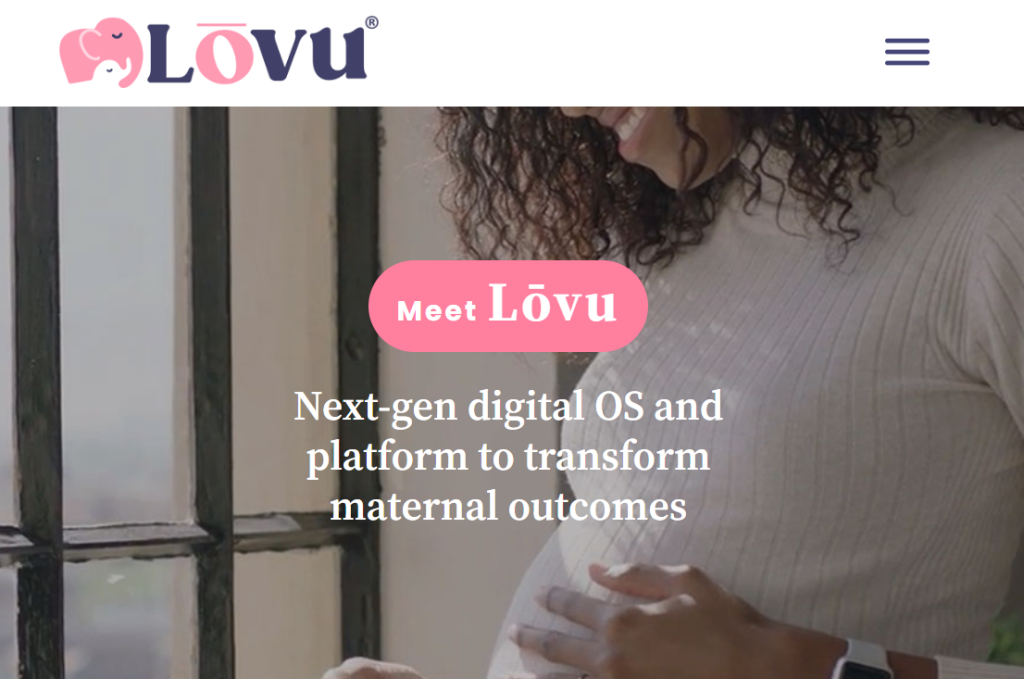Lōvu Health Secures $8M Series A to Redefine Maternal Care with AI-Driven Precision Pregnancy
September 12, 2025
byFenoms Start-Ups

Lōvu Health, a Cupertino-based digital maternal health startup, has raised $8 million in Series A funding to expand its precision pregnancy platform. At the heart of its mission is reshaping the maternal care journey - bringing together AI, real-time remote patient monitoring (RPM), and human-centered advocacy to improve outcomes for both mothers and babies.
Backed by investors including Sand Hill Angels, SJF Ventures, Emmeline Ventures, Symphonic Capital, and Swizzle Ventures, Lōvu is pioneering a new standard in maternal healthcare - one that combines advanced data-driven insights with the human connection so often missing in modern care.
Why Maternal Health Needs a Digital Overhaul
Maternal health outcomes in the U.S. lag behind many developed nations. According to the CDC, the U.S. maternal mortality rate stood at 32.9 deaths per 100,000 live births in 2021 - more than double that of peer high-income countries.
Contributing factors include limited access to culturally competent care, lack of continuous monitoring outside hospital visits, and fragmented communication between providers and patients. For many mothers, especially those in underserved communities, early interventions that could prevent complications are often missed.
Lōvu’s approach addresses these gaps directly:
- AI-Powered Precision Care: An intelligent recommendation engine that provides clinicians with timely, data-backed insights.
- Continuous Remote Monitoring: Real-time patient data collection that alerts both mothers and care teams to potential risks before they escalate.
- Holistic Support Model: A digital “village” of services, including patient advocates, for wraparound care.
A Platform Designed for Mothers and Clinicians
Unlike traditional maternal care apps that focus only on pregnancy tracking, Lōvu integrates directly into the clinical workflow. Its dual approach benefits both patients and providers:
- For Mothers: Peace of mind through proactive alerts, personalized recommendations, and advocacy that ensures their voices are heard.
- For Clinicians: Actionable insights that reduce manual workload while improving decision-making accuracy.
This hybrid of precision technology and compassionate care makes Lōvu stand out in an increasingly crowded digital health landscape.
Beyond Care Delivery: A Strategic Lesson for Founders
A subtle but powerful insight in Lōvu’s model is its ability to reduce systemic healthcare costs while improving patient satisfaction. This dual win is what attracts investors. Many digital health startups fail because they optimize for only one stakeholder - patients or providers.
But Lōvu is building a platform that aligns incentives across patients, clinicians, and payers. For founders, the takeaway is clear: if you want to scale in healthcare (or any regulated industry), design your product to serve multiple stakeholders simultaneously. Investors are far more likely to back solutions that solve system-level problems instead of isolated pain points.
Investor Confidence in a New Maternal Care Era
The funding round led by a strong mix of early-stage healthcare investors reflects a growing consensus: maternal health is ripe for disruption. With Emmeline Ventures and Symphonic Capital bringing femtech and health equity expertise, and Sand Hill Angels providing Silicon Valley’s scaling know-how, Lōvu has assembled a syndicate aligned with its mission.
Founder and CEO Noel Pugh brings deep healthcare strategy expertise, having previously launched and scaled new care models nationwide. Under his leadership, Lōvu is poised to push maternal health into a new era of precision and inclusivity.
Industry Outlook: Femtech, Digital Health, and Maternal Care
The global femtech market - which includes digital health solutions for women - is projected to grow from $28 billion in 2024 to $103 billion by 2032 (Fortune Business Insights). Within that, maternal and pregnancy care solutions represent one of the fastest-growing sub-segments.
Meanwhile, digital health investment rebounded in 2025, with Rock Health reporting $5.6 billion raised in the first half of the year, signaling renewed confidence in AI-driven healthcare.
For maternal care specifically:
- Remote Monitoring: A 2023 Nature study found that RPM in pregnancy reduced hospital visits by 38% while improving patient satisfaction.
- AI in Healthcare: Accenture projects AI could save the U.S. healthcare system $150 billion annually by 2026.
- Equity in Care: Addressing racial disparities in maternal health remains a $10B+ opportunity space for startups.
With these tailwinds, Lōvu is not just entering a growing market - it is helping define the future of maternal care.
What’s Next for Lōvu
With fresh funding, Lōvu plans to scale its platform, expand partnerships with healthcare providers, and build integrations with insurers and payers. The ultimate goal: make precision pregnancy care a universal standard, not a luxury.
If successful, the startup won’t just improve outcomes for mothers and babies - it could also reduce the broader strain on the healthcare system, proving that AI-powered compassion can reshape one of humanity’s oldest challenges: bringing life safely into the world.









